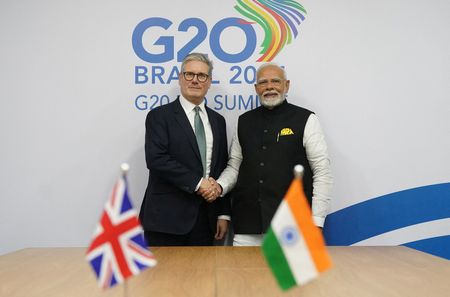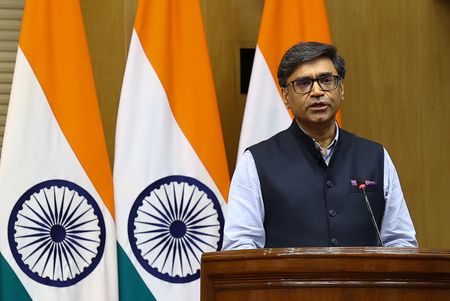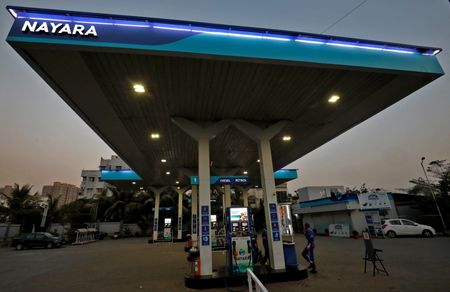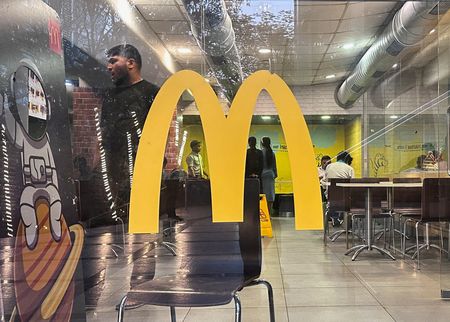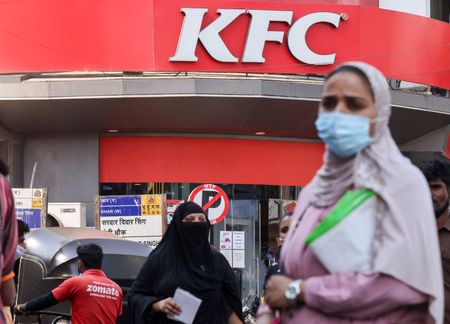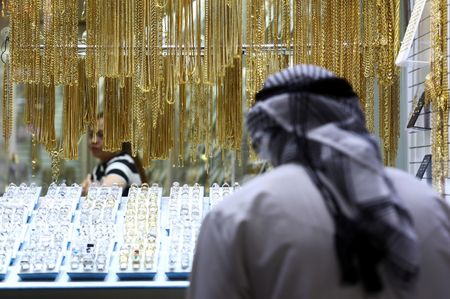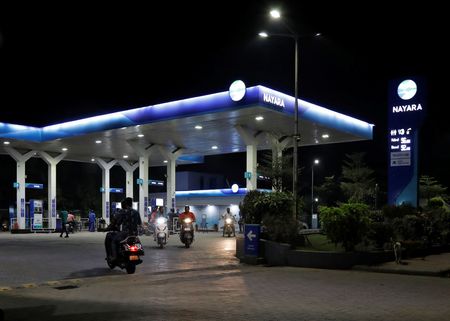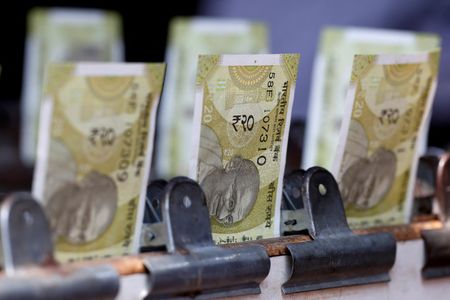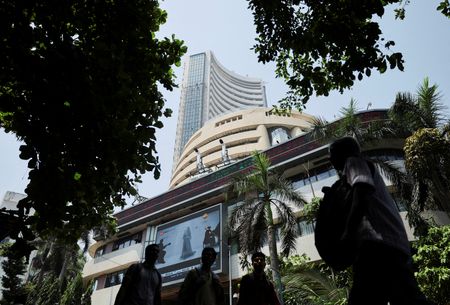By Manoj Kumar and Alistair Smout
NEW DELHI/LONDON (Reuters) – India and Britain will sign a free trade agreement on Thursday during Prime Minister Narendra Modi’s UK visit, officials said, with New Delhi to ease tariffs on British whisky, cars and some food items, and the UK offering duty-free access to Indian textiles and electric vehicles.
The pact, concluded in May after three years of stop-start talks, should boost bilateral trade by removing numerous barriers and granting each country greater market access to the other. It will take effect after the British parliament and India’s federal cabinet approve it, likely within a year.
“This is a significant agreement,” Vikram Misri, India’s foreign secretary, told reporters on Tuesday, adding that legal vetting of the deal was near completion ahead of Modi’s four-day trip to the UK and Maldives.
Trade minister Piyush Goyal will accompany Modi for the formal signing, a commerce ministry official said.
This will be Modi’s fourth visit to the UK since he took office in 2014. He is scheduled to meet Prime Minister Keir Starmer to discuss trade, energy, security, health and education issues, and also hold talks with business leaders.
Bilateral trade between the two countries reached $55 billion in 2023/24, while the UK has become India’s sixth-largest investor, with cumulative investments of nearly $36 billion, Misri said.
Around 1,000 Indian companies operate in the UK, employing 100,000 people, and they have invested about $20 billion there, he added.
Under the trade agreement, tariffs on Scotch whisky will drop to 75% from 150% immediately, and then slide to 40% over the next decade, according to the British government, and on cars, India will cut duties to 10% from 100% under a quota system that will be gradually liberalised.
In return, Indian manufacturers are expected to gain access to the UK market for electric and hybrid vehicles, also under a quota system, Indian commerce ministry officials said.
The ministry has said 99% of Indian exports to Britain would benefit from zero duties under the deal, including textiles, while Britain will see reductions on 90% of its tariff lines.
“The UK is an important market for Indian exporters,” said Ajay Sahai, director general of the Federation of Indian Export Organisations, adding that the trade pact will boost bilateral trade and provide access for Indian sectors such as textiles, footwear, marine and engineering products.
(Reporting by Manoj Kumar and Shivam Patel in New Delhi, Alistair Smout in London; Editing by Hugh Lawson)

